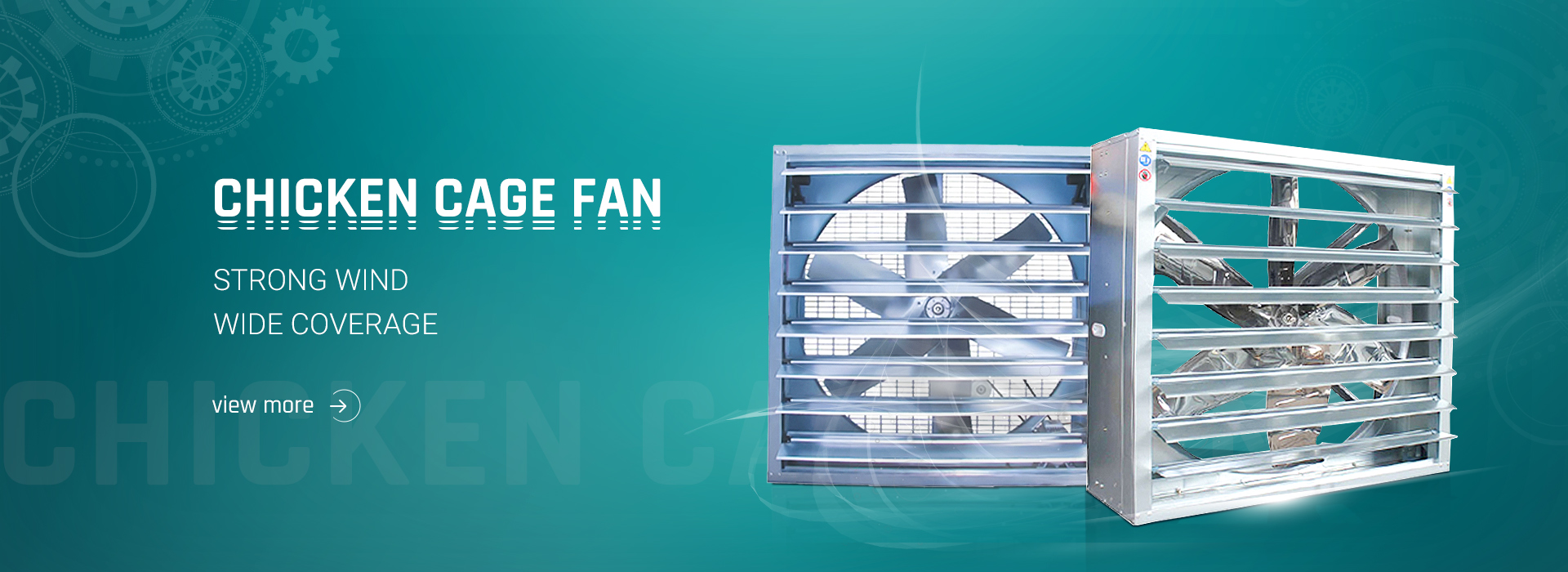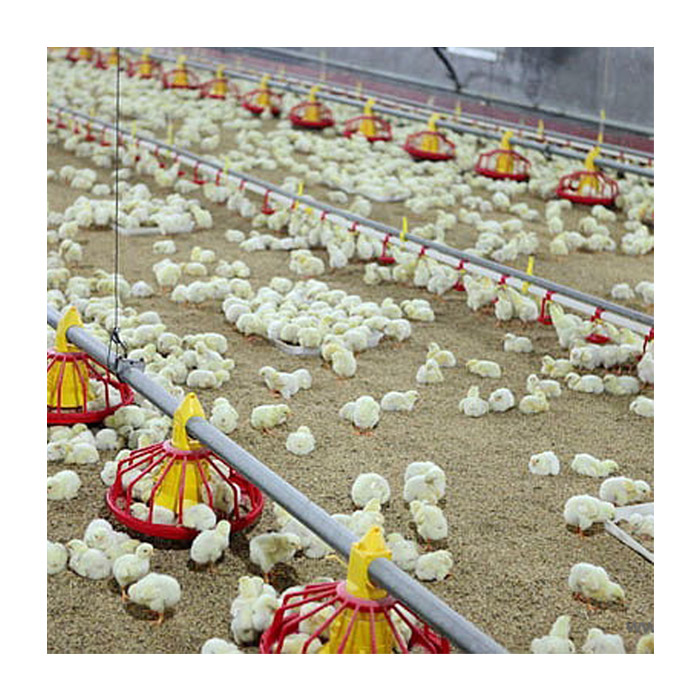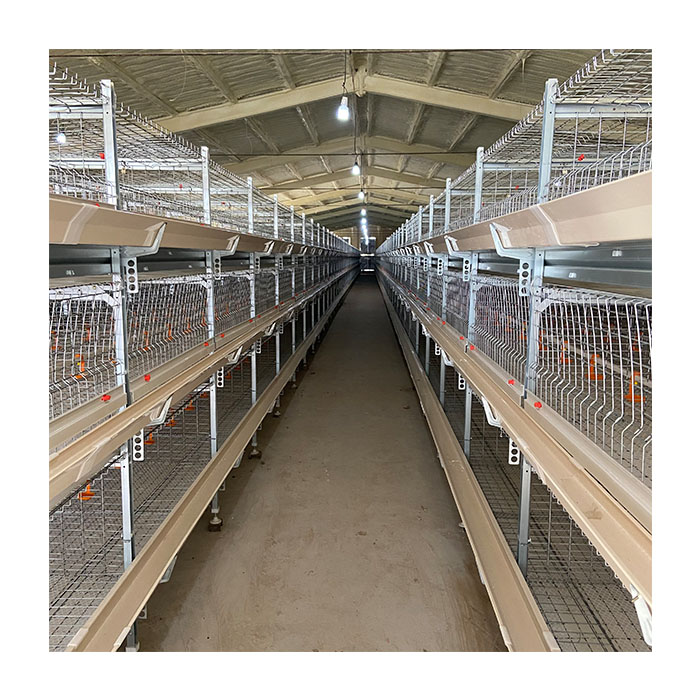1. Insulation and cold protection, do not forget to ventilate
In winter, the climate is cold, and the temperature required in the house is very different from the outside temperature. It is necessary to ventilate and maintain the temperature inside the house. The chicken house requires good cold-proof performance and meets the requirements of winter insulation. Strictly prevent the occurrence of the phenomenon that the chickens are killed by crowding due to low temperature.
While ventilating and ventilating, be careful not to cause the temperature in the house to fluctuate, and to prevent diseases caused by stress reactions caused by excessive temperature difference, the ventilation opening should be more than 1.5 meters above the chicken’s back.
When the temperature drops sharply and the cold prevention and heat preservation work cannot keep up, it is often easy to cause the broiler chickens to contract the cold, resulting in respiratory diseases characterized by symptoms such as coughing, sneezing, tracheal rales, and difficulty breathing.
Therefore, breeders must master the changes in the climate and do a good job of preventing cold and keeping warm. The chicken coop should be well maintained to prevent thieves and draughts from invading the flock.
The broiler flocks raised on the ground should have thicker bedding and use the bedding to increase the indoor temperature. Change the bedding frequently and open the windows at noon for ventilation. In general, ventilation starts at the age of 6 days, and as the age increases, the ventilation volume is increased to make the chickens have enough oxygen.
Second, keep warm and dry, don’t forget to remove ammonia
The weather is cold in winter, and ventilation cannot be neglected in order to keep the chicken house warm, and the feces and wet litter excreted by the chickens are not removed in time, resulting in the accumulation of ammonia in the chicken house and the increase in concentration, resulting in ammonia poisoning or broiler chickens. cause other diseases.
In order to prevent the adverse effects of ammonia gas on broilers, it is recommended that chicken farms (households) do a good job in the following feeding and management work: minimize watering during operation to prevent water leakage in the sink; if the humidity in the chicken house is too high, the manure in the house should be removed in time. and damp bedding.
In addition, ammonia absorption deodorant can be used to reduce the ammonia concentration in the chicken house, commonly used are ferrous sulfate, superphosphoric acid, copper sulfate, slaked lime and the like.
3. Strengthen feeding, and do not forget to prevent disease
According to the different growth stages of broilers, formulate diets according to feeding standards. Due to the low temperature in winter, the calorie consumption of broilers is relatively large. When formulating the diet, the standard of metabolizable energy in the feed can be appropriately increased, and the proportion of protein in the feed can be appropriately reduced. At the same time, special attention should be paid to the content of vitamins in the diet to meet their needs. . The raw grain of the feed must be free of mildew and impurities to prevent respiratory diseases.
Do a good job in preventing viral diseases and bacterial diseases. When broiler chickens are weak and their resistance is reduced, the occurrence of some diseases can also induce respiratory diseases. Therefore, while improving the body’s resistance, it is necessary to
Do a good job in the prevention and treatment of related diseases. Those who have been vaccinated should strictly follow the immunization program. Usually, some medicines to prevent diseases should be used regularly, and the chicken coop should be disinfected regularly.
Fourth, strengthen management, not forget the routine
Before entering the chicks, the chick house should be washed, disinfected, and fumigated strictly, and the utensils, coats, and houses should be thoroughly cleaned.
Control drinking water. Generally, drinking water is 2-3 times of the consumption of materials, but it is not advisable to supply more water, because too much water will aggravate the dampness of the litter, and prevent water from running when using pipes. Broiler flocks are prone to non-communicable respiratory diseases, especially
Broilers around 25 days of age are prone to developing in winter. The disease is the result of poor feeding and management, mainly due to dry air, excessive dust in the house, and inhalation and long-term accumulation by chickens under the condition of poor ventilation.
sick.
The prevention and control measures are to increase the ventilation volume under the premise of maintaining the temperature in the house to ensure the oxygen content in the house, which is the basic condition for the chickens to have no disease or less disease and to recover as soon as possible after the disease.
Five, environmental control, can not forget hygiene
First of all, chicks should be introduced from healthy breeder farms to prevent pathogens from being brought in through vertical transmission.
Secondly, a good breeding environment should be created. Feeding utensils and disinfection utensils are strictly separated and disinfected regularly to prevent horizontal transmission of diseases. At the same time, the adjacent chicken farms and the local area are regularly monitored for the occurrence of disease outbreaks, and preventive measures are taken. Regularly monitor the health of the chickens on the farm, and deal with the outbreak in a timely manner.
Third, adhere to the principles of bringing chickens for disinfection, eliminating rodents, strictly preventing rodent-borne diseases, burning and burying sick and dead chickens, and isolating sick chickens from healthy chickens.
Post time: Aug-23-2022





